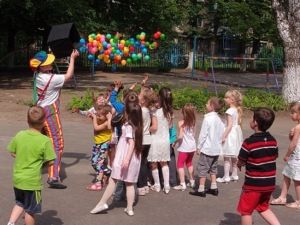News
Research indicates that more play really does make Jack a less-dull boy
This article is more than 8 years old.
Children in kindergartens gain more later in life from play instead of goal-based learning schemes

Let young children be children and play, studies suggest (photo: pixabay/Eirena)
Children who are allowed to act like children can become better learners when it comes to going to school. More play can prove to be far more beneficial than forcing children to attain learning goals at an early age.
Dion Sommer, a professor at Aarhus University’s institute for psychology, has conducted extensive research both at home and internationally and he thinks the trend towards setting goals for understanding speech and numbers can be counter-productive, TV2 Nyheder reports.
Worse rather than better
“It is especially noticeable at the start of their school lives, where we can see that children are actually worse at the subjects that they were forced to start learning earlier,” said Sommer.
The government wants to change the legal guidelines for institutions. They would like to jettison the focus on learning and development and instead make kindergartens a place “where play is fundamental”, according to Jyllands-Posten.
Lack of understanding about education
Sommer points out, though, that there is one potential stumbling block: the municipalities. The day-to-day running of institutions is too often being dictated by civil servants with qualifications in economics or social sciences rather than in how children learn.
“Economists and political scientists have entered this politicised pedagogic arena with their ways of steering things,” said Sommer.
“The big problem is that the municipalities are applying these pedagogic concepts in many ways. A large part of it consists of an external steering of the pedagogic line in the institutions,” he said.
“In this way, the pedagogue is still in a straight jacket – but from the municipal regime.”










































